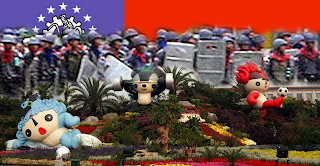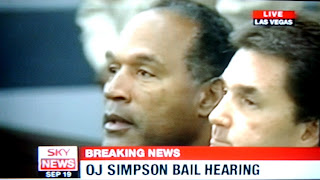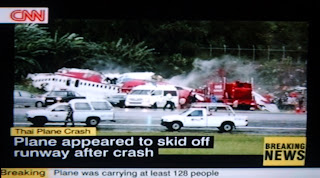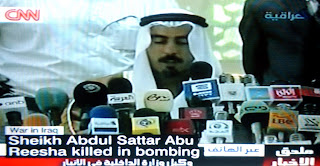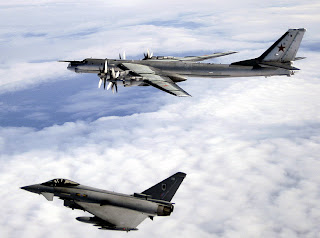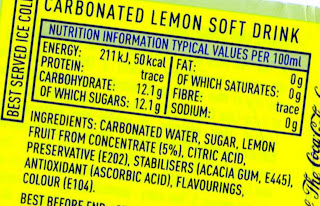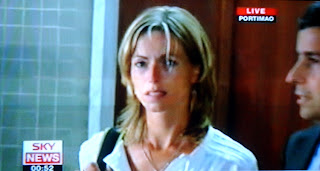
The rhetoric on the streets of New York was colourful as Iran’s president set foot on American soil. “He’s a modern day Hitler” said one of the hundreds of protesters. Others felt differently; “Bush is worse” one woman shouted in partial defence of the Iranian leader. The tabloids have been scathing of Mr Ahmadinejad ahead of his visit. The New York’s Daily News ran with the headline “Go to hell”.
But President Mahmoud Ahmadinejad had arrived not in Hell, but in New York where he was set to attend the United Nations General Assembly. He had also been invited to speak at Columbia University.
Prior to the address, the President of Columbia University, Lee C Bollinger, requested the release and free movement of journalists and other Iranian Americans who remain imprisoned in Iran. Dr Tajbakhsh should be allowed to leave the country, Mr Bollinger said. He asked why the persecution of intellectuals persists. He directed other criticism at the Iranian president particularly why in 2002 Ahmadinejad had denied the existence of the Holocaust. “Mr President you exhibit all the signs of a petty and cruel dictator, and so I ask you why have women, members of the
Bahai Faith, homosexuals, and so many of our academic colleagues become targets of persecution in your country?” Only Al Jazeera English covered the introductions Live. Sky News and ITV News broadcast short bulletins prior to the speech from the Iranian president, but it was only as Mr Ahmadinejad took the platform that the major networks joined the proceedings.
When Mahmoud Ahmadinejad finally took to the stage he criticized the rhetoric and insults from Lee Bollinger’s introduction, saying that it was “unfriendly treatment” after having been invited to the University. It would not be the way guests to his own country would be treated, he said. He complained that much of his allocated time had been taken up by the University president. CNN cut away from the president to give analysis of the event. When the coverage of the Live event continued, Ahmadinejad was speaking about the Holocaust. “Given that the holocaust happed why cannot there be further research to look at it with different perspectives?” the president said. Referring perhaps to David Irving [
BBC] he said, “Right now there are intellectuals in prison in Europe in prison because they attempted to write about the holocaust or research the holocaust with a different perspective?” He asked why further research into science and other subjects continued and even encouraged, yet a historical event which was the “cause of many heavy catastrophes in the region in contemporary history” was not investigated further. “We need to investigate whether the Palestinian people should be paying for it or not. After all it happened in Europe. The Palestinian people had no role to play in it”. He went on to ask why he should be criticised for his right to express his views; “Why should an academic like myself face insults when asking a question like this? Is this what you call uphold freedom of thought?” He then went on to talk about his nuclear policy and insisted that his country was only pursuing peaceful nuclear ambitions. He said the IAEA had made inspection and were welcome to do so and had nothing to hide. And he said the Iranian people had paid a heavy price in funding the nuclear energy policy because of European countries backing down from helping Iran with its “peace nuclear policy”. The embargo had also affected the country in other ways, insisted the Iranian president. “Why has there been an embargo on fuel from you? You’ve not even given us spare parts for our civilian aircraft for 28 years under the name of embargo and sanctions”. He finished his first part of the address saying, “We are a peace loving nation. We love all nations”. Mahmoud Ahmadinejad then received both applause and jeering.
He was then asked if he sought destruction of Israel or the Jewish state. “We love all nations, we are friends with the Jewish people” he said. “There are many Jews living in Iran peacefully”. But he did not answer the question as to whether he wished to see the destruction of Israel, and deviated into suggesting that only a “referendum of Palestinian people” could decide the future of the region. He said that there was an imbalance in the way that the Palestinians were treated and other nations were being armed.
Asked whether his country sponsored terrorism Mr Ahmadinejad said his country was also a victim of terrorism. “We need to find the root causes of terrorism and eradicate them… we don’t need to support terrorism, we ourselves have been victims of terrorism” the president said.
He was asked about the freedom of women and the imposition of the death penalty in Iran. “Freedoms in Iran are genuine freedoms” the president said, “Women enjoy the highest level of those freedoms”. And he defended the use of the death penalty citing that drug dealers were, for example, a threat to society. He then asked a rhetorical question himself; “Don’t you too have the death penalty here in the United States?”
The Iranian president may have precipitated anger in New York, but he also created a few laughs after he suggested there were no homosexuals in his country. “In Iran we don’t have homosexuals like in your country”, Mr Ahmadinejad stated, “In Iran we don’t have this phenomenon, I don’t know who’s told you that we have it”.
The president then spoke about his proposed visit to ground zero, site of the 2001 terrorist attacks in New York. “Regretfully some groups had strong reactions, but what’s bad about someone showing sympathy to the victims of the tragic September 11th event?” Mahmoud Ahmedinejad said.
After nearly 60 minutes CNN cut away from Live coverage of the unprecedented event. But the speeches were set to continue well into the week.
On Tuesday, George W Bush took to the podium at the United Nations General Assembly. In his address the president criticised the authorities in Myanmar, sometimes known as Burma, saying that they should show restraint in dealing with pro-democracy protests or face sanctions. This had earlier been echoed by Britain’s Foreign Secretary, David Miliband at the Labour Party Conference in Bournemouth, southern England.
But President Bush did not stop at Burma. In his 20 minute address he criticised Belarus, North Korea, Syria and Iran calling them “brutal regimes denying their people fundamental rights enshrined in the universal declaration”. He singled out Burma saying that Americans were outraged at the situation. It was a country, he said, “Where a military hunter has imposed a nineteen year reign of fear”. As the camera showed the Myanmar delegation, Mr Bush said that “Basic freedoms of speech, assembly and worship are severely affected, ethnic minorities are persecuted. Enforced child labour, human trafficking and rape are common”. He spoke too of the more than 1000 political prisoners held in detention, including
Aung San Suu Kyi “whose party was elected overwhelmingly by the Burmese people in 1990”.
“The ruling hunter remains unyielding, yet the people’s desire for freedom is unmistakable” Mr Bush added
He then moved on to attack the Cuban regime. “In Cuba the long rule of a cruel dictator is near its end, the Cuban people are ready for their freedom and as that nation enters a period of transition, the United Nations must insist upon free speech, free assembly and ultimately free and competitive elections”. Whilst he berated the small island of Cuba, the delegation took to their feet and all walked out in protest.
The next country in line for criticism was Zimbabwe where “citizens suffer under a tyrannical regime”. He said that the “behaviour of the Mugabe regime was an assault on its people and an affront to the principles of the universal declaration”. In his continuing list of countries came Sudan where many were “losing their lives through genocide”.
He spoke of human rights, and tackling long term threats of “murder and fear”. The threat of malaria, hunger, poverty, illiteracy and ignorance had to be solved. He soon shifted to the threat of terrorism, of “terrorists and extremists who kill the innocent” and asked that all nations help to eradicate the threat. “All nations must work together and share information on their networks” he said, “choking off their finances and bringing to justice their operatives”. But he said the way of ultimately defeating the extremists was to offer “a more hopeful vision” in order to “defeat their dark ideology”.
The General Assembly coverage continued later with an address from the Iranian president, Mahmoud Ahmadinejad. His speech, which was in excess of 40 minutes, covered much of what he had said during his address at Columbia University. He did however cover other issues. He spoke of mankind’s facing a number of challenges. There was a weakening of the institution of marriage he said. Moving on to human rights he said certain nations were responsible for widespread violations of human rights, terrorism and occupation. Seemingly pointing a finger at the United States he said been the “setting up secret prisons, abducting persons, trials and secret punishments without regard to due process, extensive tapping of telephone conversations, intercepting private mail have become common place and prevalent”. These had been carried out by those that espouse freedom he said.
He then moved onto talk on what he called the “illegal Zionist occupation” of Palestine. He inferred that ‘Israeli terrorists’ were supported by the big powers. Moving on to Iraq the president was again critical of the US. “Iraq was occupied under the pretext of overthrowing a dictator and the existence of weapons of mass destruction and the occupation continues under different excuses” the president said.
The problems of hunger and poverty were also covered in the speech. “Every day 800 Million people go to bed hungry”, Ahmadinejad said. “And 980 million suffer from absolute poverty with less than a $1 a day of spending power”. He said that environmental problems “created by a few big nations” also needed to be tackled.
He then went on to criticise “some big powers” who “continue to dominate after World War II” and who were “creating a new arms race”.
“The victors of the war drew the road map for global domination not on the basis of justice but for ensuring the interests of the victors over the vanquished nations”
He also suggested the credibility of the United Nations Security Council had been undermined and was ineffective.
He briefly spoke of his country’s right to pursue peaceful nuclear technology. Iran has fulfilled its IAEA obligations, he insisted, and declared the matter closed.
At the end of his speech the president of Iran called for a “Return to the teachings of the define prophet” and to develop fraternity, monotheism respect for the dignity of humans and create a “coalition for peace”.
The next major speaker to be covered Live was the President of Afghanistan, Hamid Karzai. He spoke of improvements having been made in his country but conceded that terrorism was still a daily threat. Opium production was also a threat not only to Afghanistan but to other countries. He went on to thank the international community for helping his country.
The international community is now focusing on the turmoil in Myanmar which for several days has seen thousands of Buddhist monks protesting on the streets. However it is unlikely that the proposed sanctions against the regime will prevent authorities crushing the pro-democracy movement. Already curfews have been imposed and there are reports of troops firing on demonstrators with live rounds and with volleys of tear gas.
